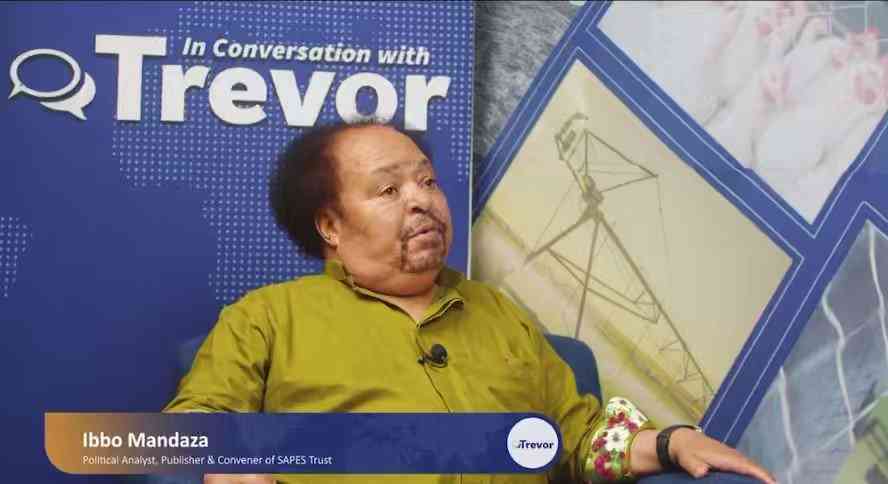
THE Sadc heads of State and government extraordinary summit hosted by the bloc’s chairperson, Zimbabwean President Emmerson Mnangagwa exposed the regional grouping’s ineffectiveness amid growing concerns that it has become a lame duck with little prospects to end the region’s challenges, observers have said.
Mnangagwa convened the summit in Harare at a time when the region is enduring several conflicts, especially in the Democratic Republic of Congo (DRC) and lately, Mozambique, where an election dispute has turned nasty.
Thousands of people have been killed in the conflict in Eastern DRC in a war that has forced some Sadc States to deploy troops to that country.
The latest conflict is one of many conflicts in the Central African country.
In August 1998, Zimbabwe deployed troops in the DRC to support the government of the late Laurent Kabila and subsequently his son Joseph.
In Mozambique, aid agencies claim that approximately 30 people have been killed in clashes between demonstrating citizens and the country’s military after the ruling Flerimo’s candidate Daniel Chapo was declared winner in an election whose result has been disputed by the opposition.
The Sadc leadership convened the extraordinary summit, which was snubbed by several leaders who chose to send representatives, with six out of 16 leaders attending the Harare summit.
Observers yesterday claimed that Sadc leaders have been snubbing the bloc’s crucial meetings in recent years, with barely a full house being recorded at most summits.
- Can Zimbabwe hold a credible election?
- NoViolet Bulawayo’s new novel is an instant Zimbabwean classic
- Letter from America: Ariel Primary: A school that teaches pupils to be angels
- Jah Prayzah, Zanu PF rekindles ‘lost love’
Keep Reading
In an interview yesterday, renowned academic and political commentator Ibbo Mandaza said Sadc, born out of the Frontline States, which spearheaded the war of liberation in southern Africa, had become a pale shadow of its former self.
“Sadc has become rather lame compared to earlier versions of it when there was firm leadership in the region,” Mandaza said.
I am talking about the era of (Julius) Nyerere, (Kenneth) Kaunda. We have a very amorphous Sadc now, indecisive and almost immersed in its own mess, overwhelmed by its own failure.
“If we go back to Zimbabwe’s elections last year, which a Sadc observer mission condemned and right to the Mozambican ones, which are a complete disaster at the moment, and over 40 people killed, and you have a situation in which Sadc has been rather slow and where they have taken action, the action is meaningless.
“And we have a summit taking place, hardly a quorum, for heads of State who should be attending, an emergency extraordinary summit, only six out of 16 heads of State attending.”
Mandaza said the recent developments exposed Sadc’s lack of seriousness as a regional bloc.
“It is a big concern because if we look at Sadc’s track record in the face of escalating crises that we have seen unfolding, it’s not great,” he said.
“I mean, do you think that Sadc is actually up to the task of addressing these ongoing regional setbacks?
“Sadc is no longer fit for purpose, in my view. One has to rethink Sadc as an organisation. It’s depressing, but everything speaks for itself.”
“The summit agenda, as has become customary, also revolved heavily around the protracted conflicts in the DRC and Mozambique.
“While these issues are undeniably important, the regional body appears trapped in an endless cycle of deliberations with few tangible results,” the political scientists added.
Political analyst Abel Kapodogo said the summits had become predictable.
“Every year, the Sadc summit begins with great fanfare, but the outcomes remain predictable,” Kapodogo said.
“Resolutions on the DRC and Mozambique have been recycled for decades, with no significant progress to show for it.”
In 2013, Sadc authorised the deployment of the Force Intervention Brigade under the United Nations umbrella, but its impact has been limited.
International relations expert Gerald Mandisonza questioned Sadc leaders’ political will.
“Sadc leaders have become too comfortable issuing statements of concern,” Mandisonza said.
“There’s no appetite for the hard decisions needed to address the root causes of conflict in the DRC or Mozambique.
“They have essentially outsourced their responsibilities to international bodies like the UN or AU [African Union],” he said.
In Mozambique, the situation is similarly stagnant.
While Sadc deployed a military mission in 2021 to combat insurgency in the northern Cabo Delgado province, progress has been patchy.
The insurgents remain active and development initiatives to address the underlying grievances of poverty and marginalisation in the region have lagged.
“Cabo Delgado is a glaring example of Sadc’s reactive approach,” Mandisonza said.
“They rush to deploy troops, but fail to follow through with robust socio-economic programmes. This half-hearted commitment only prolongs the crisis.”
Another analyst, political science lecturer Pardon Taodzera argued that the Sadc Principles and Guidelines Governing Democratic Elections have become little more than window-dressing.
“The region has seen contested elections in Zimbabwe, Eswatini and Mozambique, but Sadc’s reports often lack substance or clear recommendations for reform,” Taodzera said.
“The consensus model is the Achilles’ heel of Sadc. It prioritises unity over accountability and as a result, no member State feels compelled to comply with resolutions or improve governance.”
Meanwhile, Sadc executive secretary Elias Magosi has emphasised the need for dialogue over disputed polls in the region as unrest continues in Mozambique following that country’s October 9 elections.
The elections saw Chapo secure a decisive victory with over 70% of the vote, while opposition leader Venancio Mondlane garnered 20%.
Magosi lectured to the Sadc extraordinary summit on Wednesday on the importance of maintaining peace and stability in the aftermath of elections.
“Election processes should never deteriorate into conflict, disrupt economic activities or endanger lives and property,” he said. “We urge all aggrieved parties to use the appropriate structures under electoral laws to voice their concerns and ensure the safety and well-being of citizens.”










